

| mathematical shenanigans 
(extended) phonetic alphabet | 
fitch style notation for katex | 
many-valued logic playground | 
miscellaneous | 
unicode
| |
basic (aka phonotacticless) analysis of french phonology
may 11th, 2023 (phonology)let's start with the vowels. though french has six non-diacrited letters, ⟨a, e, i, o, u, y⟩, which can represent phonetical vowels, french phonemically has 10.5 main vowels and 6.5 secondary vowels :
| main phoneme | secondary phoneme | examples |
| p.p. stands for "personal pronunciation", based on my own recordings and praat, as a native french speaker. | ||
| /i(~i̯)/ (p.p. : [i̟, j]) |
v ab benzo l | |
| /ɥ(~y)/ (p.p. : [y̽, ɥ]) |
cr s | |
| /w(~u)/ (p.p. : [u, w]) |
p a | |
| these three previous phonemes have two phoneTic sides to them, as they can be vowels or "semi-vowels" (which are consonants, phonetically speaking). however, unlike many languages, there is generally no noticeable difference between vowels and semi-vowels in french. it's notably due to the dialectal variation between syneresis and dieresis. hence, despite a phoneTic difference (their "precise articulation" in enunciation), their phoneMic distinction (their "role" in enunciation) is much more marginal and depends on regional variation. | ||
| /ɛ/ (p.p. : [ɛ̝]) |
m s f | |
| /ɛː/ (p.p. : [ɛ̝]) |
f | |
| /e/ (p.p. : [ɪ̝]) | ||
| the phonetic distinction between /ɛ/ and /e/, often typographically reduced to the distinction between "è" and "é" (even if you see above that different scripts remain), is quite intuitive. however, they have very few minimal pairs, and their pronunciations overlap and alternate regionally. /e/ having very few consistent typographical representations (only "é"), and /ɛ/ being somewhat already the default in ambiguous cases, i tend to use /ɛ/ in all cases outside of minimal pairs, but I find it just as logical to write /e/ as long as it's written "é", it's just less readable than /ɛ/ in my opinion. as for /ɛː/, there are practically only quebecers, belgians and... i think swiss people as well, who still make the distinction with /ɛ/, so this phoneme is secondary in the sense of regional marginality, rather than minimal pair marginality. | ||
| /œ/ (p.p. : [ɜ̹˗]) |
s c | |
| /ø/ (p.p. : [ʉ̞]) | p j | |
| /ə/ (p.p. : [ʉ, (none)]) | sonn | |
| /œ/ and /ø/ fulfill more or less the same roles in enunciation. although we can write "eû" to specifically indicate /ø/, we don't tend to hear any difference between /ø/ and /œ/, so even for "eû" the pronunciation can hesitate. because of this, it can be shown that there is only one minimal pair between these two sounds, "jeune" /ʒœn/ vs "jeûne" /ʒøn/, which is then an extremely marginal distinction. for all these reasons, i use /œ/ all time except for "jeûne" specifically, but writing /ø/ for each instance of "eû" also works in my opinion, whichever you prefer (on the other hand, it might be complicated to make me believe that they have different roles...). on the other hand, /ə/ plays a slightly different phonemic role, even thought it's pronounced the same as /œ/ or /ø/... well, when it is pronounced. see, french /ə/ is nothing like english /ə/ ; whereas [ə] phonetically denotes the neutral vowel, /ə/ is used here for the "e caduc". unlike /œ/ or /ø/, you can simply not pronounce /ə/ orally (with syneresis and dieresis, /ə/ is one of the things that make syllables so complicated to parse out in french). | ||
| /o/ (p.p. : [o̝]) |
d tant p s | |
| /ɔ/ (p.p. : [ɞ̟]) |
h séb | |
| the /ɔ/ has some minimal pairs with /o/, notably "pomme" and "paume", "phone" and "faune", "sonne" and "Saône", etc. however, they overlap a lot in terms of phonemic roles and alternate a lot in pronunciation, at least outside of these minimal pairs and/or across dialects. therefore, i use ɔ only in cases of minimal pairs, even though I do have a special pronunciation for /ɔ/ (in my accent it's practically [ɞ]). | ||
| /õ/ (usually written /ɔ̃/, p.p. : [õ͓]) |
p | |
| /ĩ/ (usually written /ɛ̃/, p.p. : [ɐ̃]) |
br m paï p | |
| /œ̃/ (p.p. : [ɐ̃, ä̃]) |
br | |
| /ã/ (usually written /ɑ̃/, p.p. : [ä̃]) |
pl l s f | |
| as you might have noticed, nasal vowels are notated with a | ||
| /a/ (p.p. : [ɐ̞]) |
p au-del | |
| /ɑ/ (p.p. : [ä̃]) | p | |
| /ɑ/ isn't really distinguished from /a/ anymore, except in belgium, quebec, etc. | ||
as for consonants, we globally have 17 of them :
| consonants | | voiceless
| voiced
| voiceless
| voiced
| voiceless
| voiced
| nasals
| /m/ | (" /n/ | (" /ɲ/* | ("ba plosives
| /p/ | (" /b/ | (" /t/ | (" /d/ | (" /k/ | (" (" /ɡ/** | (" ("al fricatives
| /f/ | (" /v/ | (" /s/ | (" /z/ | ("pha (" /ʃ/** | (" (" /ʒ/** | (" (" liquids
|
|
* i generally reserve this symbol at the end of a word, and in other positions or when there are liaisons (noted with ‿, by the way), i just write /ni/. | ** we frenchies want to pronounce /ɡi/ and /gɛ/ like /ʒi/ and /ʒɛ/ upon reading them, but we have to be careful. if it's really that complicated, i guess we can write it /ᶃ/, so it looks like there's a "u" right after it, even though it's an obsolete symbol and instead denotes a palatal sound (even though in itself, /ɡ/ it's velar, so on the hard palate... anyway lol). on the other hand, ʃ (esh) and ʒ (ezh) are somewhat complicated symbols, but they're distinct enough so that we can get used to them without confusing them with something else, so that's fine imo. *** usually written /ʁ/, but i prefer to keep the international convention to represent languages' rhotics as /r/. | |||||||||||||||||||||
|